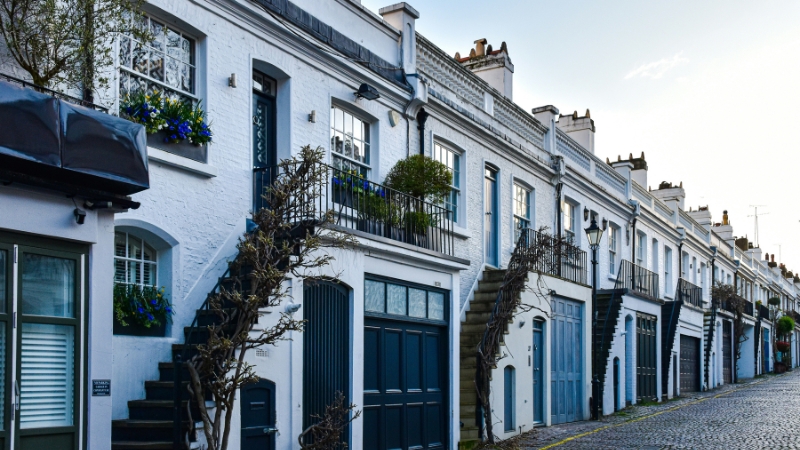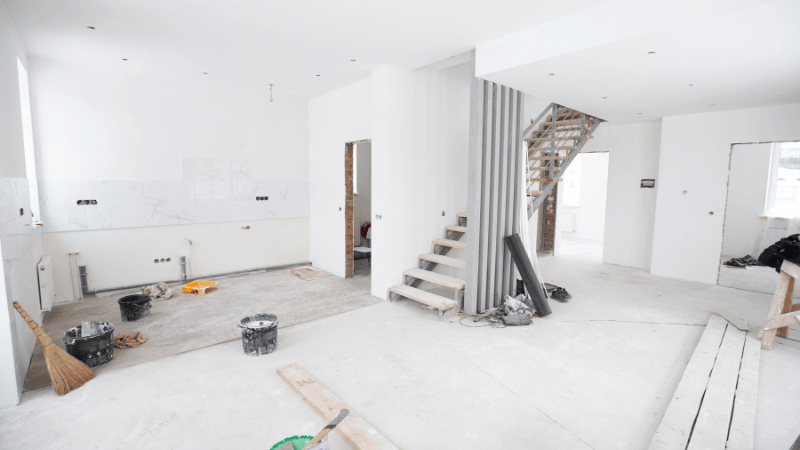Categories
How To Get A Second Charge Mortgage To Raise Capital Using Equity In Your Home

What is a second charge mortgage?
A second charge mortgage, which is sometimes known as a secured loan or homeowner loan, is a type of loan that sits behind the initial mortgage (first charge) on a property.
The capital is raised by using the existing equity in a property as security for the mortgage.
A number of different property types can be used as security for a second charge mortgage including:
- Houses
- Bungalows
- Flats
- Cottages
- Maisonettes.
This means that as long as you own a property, which has a sufficient amount of equity, then you may be able to access a second charge mortgage, depending on your personal circumstances.
A second charge mortgage is subordinate to your existing mortgage on your property. So, in the event that you sell your residential property, your first mortgage takes priority. In this scenario, your initial mortgage is paid off entirely first and then whatever is left goes towards paying off your second charge mortgage. This financial risk is reflected in the interest of a second charge mortgage, as they generally have higher interest rates than first mortgages.
What can I take out a second charge mortgage for?
Second charge mortgages are adaptable: they give you the opportunity to access potentially hundreds of thousands of pounds, along with favourable terms to suit your specific set of circumstances.
Due to their flexibility, second charge mortgages can be used for a number of different purposes.
Second charge mortgages for home improvements
Renovating your residential property may be an appealing prospect. First and foremost, completing a renovation project on your residential property allows you to customise aspects of your property to suit your taste. In addition, refurbishing your property could add significant value to your home; this may be important when you look to sell.
Second charge mortgages for debt consolidation
Rearranging your finances could make your life a lot easier. A second charge mortgage could be used as a way to consolidate any debt that you have.
This could structure your debt into a singular monthly payment, which may give you financial clarity and help you budget more effectively.
Although this could be a good reason to get a second charge mortgage, it does depend on your personal circumstances.
A second charge mortgage can last up to 35 years and using one to consolidate debt may make you pay more overall, even if the payments feel more affordable in the short term.
Second charge mortgages to pay school fees
In recent years, the cost of education has sky-rocketed. There are some institutions that are charging above £10,000 per academic term for tuition.
A second charge mortgage could help you raise the finances you need to put your children through private education.
Second charge mortgage for purchasing a buy to let property/ investing in a business …
It is integral that you have readily available funding when you are faced with a potentially attractive commercial opportunity.
Second charge mortgages may not be the fastest way to raise finance for an investment, but they can provide a significant amount of capital and may enable you to benefit from a commercial opportunity.
For example: a second charge mortgage could provide the finance you need to invest in a buy to let property.
What to consider when taking out a second charge mortgage
Before looking to apply for a second charge mortgage, it is important to consider the following:
Is a second charge mortgage appropriate?
You should consider how much capital you need to raise for your given purpose, as sometimes a second charge mortgage may not be suitable.
For smaller amounts of money, let's say under £25,000, you may want to explore your unsecured loan options. This is because there are cheaper short-term options available on the market, which could allow you access to the funds you need at a lower cost.
What Loan to Value is Needed?
Before applying for a second charge mortgage, you need to work out the Loan to Value (LTV) you can achieve.
The easiest way to do this is by finding out the remaining balance on your mortgage, as this will give you an indication as to the LTV you are likely to secure.
The maximum loan to value a second charge lender will be comfortable with taking into account your first charge mortgage is currently 80% to 90% loan to value. As with a first charge mortgage the lender will assess your income and outgoings in ensuring you can afford the repayments on the loan on top of what you are currently repaying to your first charge lender.
What about early repayment charges?
The appropriateness of a second charge mortgage may depend on whether you are likely to incur an early repayment fee.
There are some lenders that will charge an early repayment charges (ERCs) in the event that a borrower repays their loan before the agreed term of finance; these charges will be outlined in the loan offer and agreement.
If you are likely to repay the loan early, it is imperative to secure a loan with no early payment charges or where the early repayment fees end after a fixed period e.g. 12 months.
There are some lenders who offer second charge mortgages which have no ERCs. Please contact us for more information.
How much does a second charge mortgage cost?
In order to obtain a second charge mortgage you will have to pay some fees.
The majority of lenders will require you to pay valuation charges, legal costs or land registry fees and a broker fee.
It is advisable to seek the assistance of a good broker to negotiate with the lender, to minimise the overall fees.
Recently a number of lenders have intriduced low cost second charge loan options where the valuation fee is refunded if the lender is not able to offer terms, and where lender legal fees are covered by the lender. Please contact us for more information on 0203 900 3040
Is a second charge mortgage affordable?
You should bear in mind that taking out a second charge mortgage could be a significant financial commitment.
It is advisable to breakdown your monthly incomings and outgoings to ascertain just how much you can afford to repay each month.
Although some lenders will offer longer terms of finance in exchange for smaller monthly payments, you do not want to be stuck paying off a second charge mortgage for a long time. You need to strike the balance between affordability and longevity.
If you agree to a term for a second charge mortgage that is longer than you need, it may end up costing you a significant amount more than is necessary.
Is there an option for deferred payments on a second charge mortgage?
Some lenders provide the option to defer a mortgage repayment, this is usually called a "payment holiday" and generally allows you to delay mortgage repayments for an agreed period of time.
If the option to delay a payment is attractive to you, then you may want to consider finding a second charge mortgage with the “payment holiday” option.
Can I get an interest only second charge mortgage?
The good news is that a few lenders offer options on interest only for a fixed period e.g. 2 or 5 years.
This can be useful in situations where there is a heavier financial burden in the fixed period e.g. when school fees have to be met or where earnings are expected to increase e.g. for doctors or lawyers.
Does a good credit rating make a difference?
One of the main determining factors for a lender is the applicant's credit rating.
By finding out your credit rating, you can see how likely it is that your application will be successful. You can check your credit score online, through sites such as experian, equifax or callcredit.
You need a good credit rating to give yourself the best chance of securing a low rate second charge mortgage.
There are many factors that can cause adverse credit such as:
- A County Court Judgment,
- Any bankruptcy proceedings,
- A late payment of a utility bill
- Entering into an Individual Voluntary Arrangement (IVA) with your creditors.
How to improve a poor credit rating?
If you have a fair or por credit rating there are a few simple steps you can take to improve your credit rating such as getting on the electoral roll, paying off any debt, reducing debt you currently have or closing unused accounts; having multiple credit accounts may indicate that you rely too heavily on credit.
How long does a second charge mortgage application take?
In April 2016, the Financial Conduct Authority became the governing body for second charge mortgages. As a result, the application process for a second charge mortgage changed to mirror the application process of a normal residential mortgage.
Fact finding …
The first step to getting a second charge mortgage is to speak to your mortgage adviser.
You need to provide them with as much information as possible, to give them an idea of your financial situation and your needs.
You will usually be asked about your income, your property and your employment. This information allows the adviser to identify a couple of second charge mortgage options, to suit your set of circumstances.
If you are satisfied that one of the options provided is the right one for you, the adviser will send your details to a lender to decide whether they are prepared to lend to you.
Providing the lender is prepared to potentially grant you a second charge mortgage, they will send a second charge mortgage decision in Principle.
Application process …
Upon receipt of the Second Charge Mortgage in Principle, the adviser will need to calculate whether you can afford the proposed second charge mortgage. This means that they will need to complete an in-depth review of the following :
- Your income
- Your monthly expenditure
- Your most recent credit rating
- Your references
In order to fully assess the affordability of the second charge mortgage, an adviser will request your proof of identity, your employer’s details, the last 3 months' worth of bank statements and three months' worth of your most recent payslips.
The information and documentation required allows an adviser to underwrite your application and send it to the lender.
Property surveyor's valuation …
If the lender is satisfied that you could afford the second charge mortgage repayments, then they will request a thorough valuation of your property carried out by a profession property surveyor. This is to ensure that the value of your property is high enough to raise the capital you want.
Second charge mortgage offer and European Standardised Information Sheet …
Providing that your application is successful, the lender will give you a full breakdown of the mortgage's features.
This is to ensure you are fully aware of the terms and conditions surrounding your second charge mortgage, along with your repayment obligations
In addition, the provider will supply a European Standardised Information Sheet (ESIS).
The ESIS should give you a reflection period, the full terms of the offer, the main details of your second charge mortgage application and a summary of its main features
Typically, you will have seven days to make a decision as to whether you want to accept the lender's offer. The lender's offer cannot change or be withdrawn within the seven day grace period, unless some of the information provided in your application is false.
Once the offer is in place, you can compare it to other loans on the market. This way you can be totally sure that you are getting the best deal for your set of circumstances. If time is of the essence, you can accept the offer straight away and expedite the application process.
Using a second charge mortgage as an alternative to a bridging loan
Although you may feel that a bridging loan is an attractive option for your financial needs, there are times when a second mortgage is more appropriate.
Long term borrowing ...
Bridging loans can provide a significant amount of money in a short space of time.
However, they are specifically designed for short-term usage and often come with terms of finance between 3 and 24 months. If you fail to repay the loan within the agreed term, you could end up paying a lot more for your finance.
Second charge mortgages are more suitable for long-term borrowing. Unlike bridging loans, second charge mortgages can be arranged for 30 years or more and could be a long-term solution to your financial needs.
Fees ...
Depending on the lender, you could incur a number of different fees through a bridging loan.
It is not uncommon for bridging loan lenders to charge arrangement fees, which usually are around 2 per cent. As with a second charge mortgage there will be valuation and legal fees. Monthly interest incurred on bridging finance depending on the property and loan to value will range from typically 0.5% pm to 1% pm.
Although second charge mortgages do have equivalent set up fees the overall rate of interest charged will generally be a lot lower depending on your circumstances. The best second charge loans available in the market at the time of writing start at 3.70% pa.
Interest rate ...
Second charge mortgages are subordinate to a normal residential mortgage; if you default on both your monthly payments, then your initial mortgage has priority of payment.
This additional risk is reflected in the interest of a second charge mortgage, as they generally have higher interest rates than first charge mortgages.
Despite the higher interest of a second charge mortgage, bridging finance interest rates are still typically higher. This is to account for the speed, convenience and streamlined application process of a bridging loan.
Therefore, if you want to keep your monthly loan repayments down and you are looking for longer term finance a second charge mortgage over a bridging loan may be a better option.
Our Second Charge Mortgage Broker Service
As a specialist property finance broker, Clifton Private Finance have a wealth of experience in securing 2nd charge mortgages.
We have strong professional relationships with high street banks, specialist lenders, and can secure market leading terms to meet our clients' needs.
Depending on your personal circumstances, we can access second charge mortgages up to 85% LTV.
The process can be quick. Depending on your circumstances funding can be arranged in 3 weeks.
To investigate your second charge mortgage options, call our team on 0203 900 4322 or use our callback form.
2 Year Tracker
Up to £2m
4.49% APR
2 Year Tracker
Subsequent rate 8.49%
LTV - 75%
APRC 7.9%*
Product Fee £0
Free standard valuation
Early redemption charges
As of 21st October 2024
5 Year Fixed
Up to £3m
3.78% APR
5 Year Fixed (Remortgage)
Subsequent rate 7.25%
LTV - 60%
APRC 5.9%*
Product Fee £999
Early redemption charges
As of 21st October 2024
2 Year Fixed
Up to £3m
3.89% APR
2 Year Fixed (Remortgage)
Subsequent rate 7.25%
LTV - 60%
APRC 6.8%*
Product Fee £999
Early redemption charges
As of 21st October 2024
Contact Us
Thank You for your interest - please complete the form below and a member of our team will be in contact.















